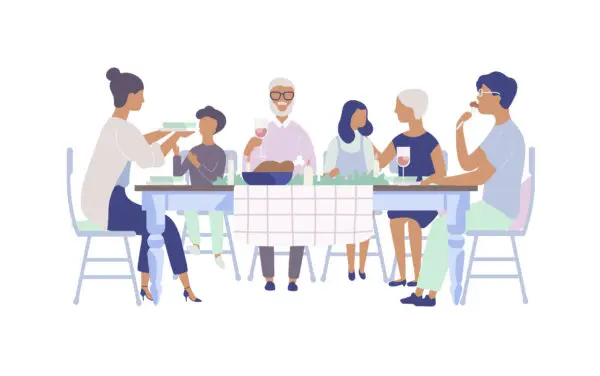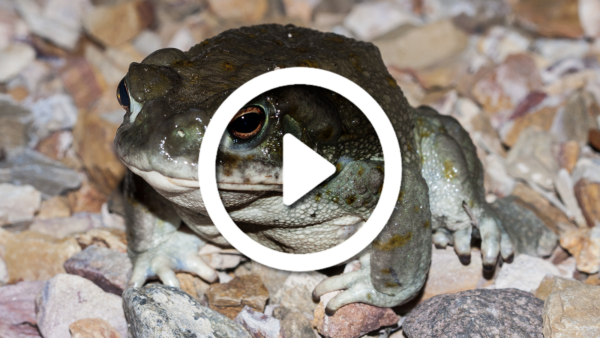Whether you’ve already embarked on a personal journey with psychedelic healing, are considering it, or are about to begin, you may be wondering how you’ll talk to your parent or parents about it. Since psychedelic work is a sacred and unique process, it requires discernment in who you process and share your experience with.
If you have decided to share your psychedelic outlook with your parents, it is natural to be apprehensive, particularly when you already know they don’t support anything they perceive to be misbehavior. Your mission: to help them see your perspective and why psychedelic medicine is important for your personal path. The challenge: any number of factors, including existing religious, cultural, or personal bias against psychedelic experiences.
It is possible, however, to have a respectful, informative discussion where you share your views on psychedelic therapy and the role it plays (or will play) in your life. Here is how to talk about psychedelics with your parents, hopefully with a lot less tension than you’re anticipating now.
Start by validating their personal beliefs
Just as you have a deep desire for your parents to support you and your decisions, you must also demonstrate support and appreciation for their personal views as well. You can start your discussion by expressing admiration for how they’ve come to believe what they do and the ways that they live with conviction in those beliefs. If applicable, you can mention how their perspective has helped shape your own as you’ve grown up in their care and share your feelings of gratitude for what they have taught you.
Validating your parents’ beliefs will help clarify that you aren’t coming from a place of rebellion, criticizing them as individuals, or questioning their values. This way, they won’t feel defensive before you’ve even approached the important subject matter.
Talk about what you have in common
Ultimately, your parents want to protect your well-being and come from a place of love when they express concern for you. They want what is best for you and for the family, so it’s important that you remember to iterate that you want the same thing.
To support your statement, talk about what you and your parents have in common when it comes to what you value and believe. If they have deep ties to your cultural background, tell them it’s also important to you, and what a significant role it plays in a personal identity you are proud of. If you still subscribe to certain aspects of their religious beliefs or if your spiritual orientation aligns with theirs in some way, you can also discuss these factors.
Identifying and expressing appreciation for your shared values establishes the feeling that you’re all on the same team.
Talk about what you want for your personal path (and why)
It’s possible that you’ve had to have discussions with your parents in the past about where you’re going, what you want to do, and who you want to be. Talking to your parents about psychedelics may or may not feel similar, and you might feel nervous about standing your ground.
The best way to start with strength is to speak in a general way about what you’re seeking in life, whether that involves improved physical or mental health, personal exploration and discovery, a greater sense of meaning and connectedness, or a deeper understanding of your purpose in life. These are all positive pursuits that your parents are likely to support and agree with.
Acknowledge and address some of the common misconceptions
It’s important to understand that misinformation and misconceptions about psychedelics have been very prevalent, particularly for the generations who were young when the War on Drugs began in 1970. In the years that followed, psychedelics and those who advocated for them were vilified and painted as criminals, radicals, and lunatics by many influential politicians and public figures.
Before the internet existed, it was more difficult for people to access the array of information available to debunk myths, fact-check, and identify propaganda. As a result, our parents have lived most of their lives believing false claims that psychedelics are dangerous and addictive. When discussing your decision to use psychedelic therapy, keep this in mind. Be understanding of their social perspective, and gently mention that science has helped the cultural mentality begin to shift.
Discuss the scientific and anecdotal evidence supporting psychedelic medicine
It can only work in your favor to be fully informed about how psychedelic medicine works and why it is becoming more widely accepted and common among the public and scientific communities.
Psychable offers a wide variety of articles that are expertly researched and written to address some of the most important topics related to psychedelics; many of them are medically reviewed by medical professionals, subject matter experts, and doctors with experience in the psychedelic space. Do your homework before initiating a discussion with your parents, and your knowledge may garner more respect for your point of view.
Tell them what it means to you
More than likely, you have discovered psychedelic medicine because other treatments have either not been effective or are not right for you personally. Talking with your parents about how psychedelic therapy can be different and the potential for long-term healing can be a powerful way to help them understand why you’d consider an alternative therapy like this.
In cases related to alcohol and drug use disorders, eating disorders, PTSD, and other conditions that have had an immense impact on your quality of life, alternative solutions like psychedelic therapy may be a compelling solution to an issue they want to resolve just as much as you do.
If you’ve never been very open about your personal struggles or the specifics about how a certain condition affects you, now is a really good time. It can offer them the insight they may not previously have had, and allow them to feel compassion and empathy for where you’re coming from.
Assure them of your safety
It’s a great idea to mention the qualifications of your provider, for example, a doctor, nurse practitioner, licensed therapist, psychologist, or other types of certifications and specialized training that validate their knowledge and experience. You can mention what appeals to you about a certain practitioner, including their outlook and mission statement, cultural background, or personal story.
Your parents will probably also like to hear about your plans for preparation, the safety measures taken during the psychedelic experience, and the integration that occurs afterward. This can facilitate understanding of the process and assure them that your decision to try psychedelic therapy is not impulsive, reckless, or inherently dangerous.
Ask if they have questions
One of the best ways to wrap up a conversation with your parents about psychedelics and psychedelic-assisted therapy is to ask if they have any questions or further concerns about what you have discussed. They may or may not have statements to counter your point of view, even if you’ve made a solid case. That’s okay: it’s important to listen to what they have to say and embrace it with love and respect, even if their opinions differ from yours. Answer questions and thank them for their input.
What if they freak out?
At the end of the day, you are doing the right thing by talking to your parents about something that is not only important to you but also may have a meaningful and lasting impact on the way you live your life from this point forward. Giving them the opportunity to support you, if that is what they choose to do, is very important to the people who love you and have raised you. Hopefully, your parents will appreciate your openness and even be excited to learn about how psychedelic medicine might help you.
However, if they become upset and can’t be persuaded to support you or be open to the concept of psychedelic therapy, there is not much more that you can do. It’s best not to engage in a heated argument, as this may only further convince them that you are out of line. Instead, gracefully wrap up the discussion and continue to acknowledge their concerns as valid, but be strong and confident as you reiterate your personal decision and invite them to have another conversation in the future.
Feel free to invite your parents to explore and learn more about psychedelics on Psychable. We’re supporting your journey.
Closing thoughts: wisdom and discernment
Wisdom and discernment can also inform who to talk to about your psychedelic experience. Engaging with psychedelic therapy is an immensely personal decision, one that you should discuss only in safe spaces with people who can potentially provide positive support. Though relationships with your parents are an important part of your life, you may want to reflect on whether the right path forward involves disclosing this part of your life to them. If not, there is no reason to feel guilty or ashamed. What is important is that you do what’s right for you in the safest way possible, with the kind of support you will need.









